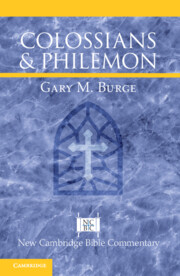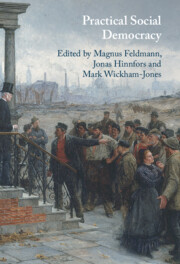Refine search
Actions for selected content:
3411440 results

Before Recognition
- How the Politics of Religion shaped the International Order
- Coming soon
-
- Expected online publication date:
- April 2026
- Print publication:
- 30 April 2026
-
- Book
- Export citation

Colossians and Philemon
- Coming soon
-
- Expected online publication date:
- April 2026
- Print publication:
- 30 April 2026
-
- Book
- Export citation

The Cambridge History of Music in Spain
- Coming soon
-
- Expected online publication date:
- April 2026
- Print publication:
- 30 April 2026
-
- Book
- Export citation

Elizabeth Maconchy in Context
- Coming soon
-
- Expected online publication date:
- April 2026
- Print publication:
- 30 April 2026
-
- Book
- Export citation

The Cambridge Companion to the Greek Iron Age
- Coming soon
-
- Expected online publication date:
- April 2026
- Print publication:
- 30 April 2026
-
- Book
- Export citation

Practical Social Democracy
- Coming soon
-
- Expected online publication date:
- April 2026
- Print publication:
- 31 March 2026
-
- Book
- Export citation

Nuer Messianic Judaism
- Truth and Mediation in the Ethiopia-South Sudan Borderlands
- Coming soon
-
- Expected online publication date:
- April 2026
- Print publication:
- 31 March 2026
-
- Book
- Export citation
Empire and Peripheries
- Tribalism, Resistance and British Colonialism in Balochistan
- Coming soon
-
- Expected online publication date:
- April 2026
- Print publication:
- 31 January 2026
-
- Book
- Export citation
Dispute Settlement Reports 2024
- Coming soon
-
- Expected online publication date:
- April 2026
- Print publication:
- 30 April 2026
-
- Book
- Export citation
Dispute Settlement Reports 2024
- Coming soon
-
- Expected online publication date:
- April 2026
- Print publication:
- 30 April 2026
-
- Book
- Export citation

No Future
- Punk, Politics and British Youth Culture, 1976–1984
- Coming soon
-
- Expected online publication date:
- April 2026
- Print publication:
- 14 May 2026
-
- Book
- Export citation
Agents of Inertia
- The Pursuit of Business Interest and Calcutta's Urban-Economic Decline, 1900-1970
- Coming soon
-
- Expected online publication date:
- April 2026
- Print publication:
- 01 July 2027
-
- Book
- Export citation

The Self in Premodern Thought
- From Antiquity to the Renaissance in Europe
- Coming soon
-
- Expected online publication date:
- April 2026
- Print publication:
- 31 March 2026
-
- Book
- Export citation

The Inner Life of Politics
- Grassroots Activism in West Germany, 1962–1983
- Coming soon
-
- Expected online publication date:
- April 2026
- Print publication:
- 30 April 2026
-
- Book
- Export citation
Making the Periphery Legible
- State-making in Nagaland
- Coming soon
-
- Expected online publication date:
- April 2026
- Print publication:
- 01 July 2027
-
- Book
- Export citation
Central Margins
- Sri Lanka's Violent Frontier
- Coming soon
-
- Expected online publication date:
- April 2026
- Print publication:
- 01 July 2027
-
- Book
- Export citation
Making and Remaking the State
- Women and Counterinsurgency in Eastern India
- Coming soon
-
- Expected online publication date:
- April 2026
- Print publication:
- 01 July 2027
-
- Book
- Export citation
Democracy against Equality
- Caste, Institutions and Power in Postcolonial Punjab
- Coming soon
-
- Expected online publication date:
- April 2026
- Print publication:
- 01 July 2027
-
- Book
- Export citation

Games and Coalitions
- Bridging Non-cooperative and Cooperative Approaches
- Coming soon
-
- Expected online publication date:
- April 2026
- Print publication:
- 30 April 2026
-
- Book
- Export citation
Muslim Capitalism
- A Political and Legal History of Colonial Bombay
- Coming soon
-
- Expected online publication date:
- April 2026
- Print publication:
- 01 July 2027
-
- Book
- Export citation
